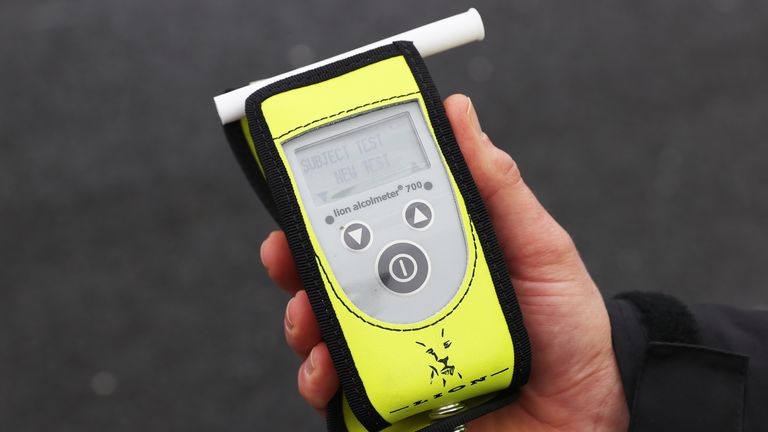Belgian brewer whose body produces its own alcohol cleared of drink driving
Three doctors confirmed the man - who also worked in a brewery - has auto-brewery syndrome (ABS), a condition where intoxicating levels of ethanol are produced in the gut.
Tuesday 23 April 2024 13:13, UK
A Belgian man has been cleared of drink driving after doctors confirmed he had an extremely rare condition which causes his body to produce large amounts of alcohol.
The 40-year-old was found to have auto-brewery syndrome (ABS) - a condition where intoxicating levels of ethanol are produced in the gut.
Those with the condition can have symptoms identical to being drunk, including slurred speech, stumbling, loss of motor functions, dizziness and belching.
The man, who also worked at a brewery in what his lawyer described as "another unfortunate coincidence", was first convicted of drink driving in 2019.
At the time, he was not aware of his condition. However, according to local media, he was confused because he had not been drinking.
He was pulled over in his vehicle by police again in April 2022, and then a month later, and found both times to be over the country's drink-drive limit.
According to reports, the first stop took place around 4pm and the man told police he had only consumed two beers the previous day.
The man then had himself examined by two doctors, who independently confirmed he suffered from ABS.
According to local media, during one study, he was fed sugary food for 24 hours and without drinking alcohol, his body "massively converted the carbohydrates into alcohol".
A third doctor appointed by the police court in Bruges also came to the same conclusion.
Belgian media reported that in the verdict, the judge emphasised that the defendant, who was not named in line with local judicial custom, did not experience symptoms of intoxication.
They also reported that the judge did not order a driving ban based on his condition.
Instead, the judge ruled that the man must take measures - such as dietary changes or an alcolock that prevents him from driving over the limit - or face a conviction if he fails a future breath test.
Be the first to get Breaking News
Install the Sky News app for free


Read more from Sky News:
Designer jailed for smuggling crocodile handbags into US
Ostrich dies after swallowing zoo worker's keys
The man's lawyer, Anse Ghesquiere, said the court had effectively ruled that there had been a force majeure - a legal term for an event for which no party can be held accountable - and he had been acquitted.
She said that her client was awaiting formal notification of the acquittal and that the prosecution service had a month to lodge an appeal if it wished to do so.
The Bruges police court did not immediately reply to an email from Reuters.


